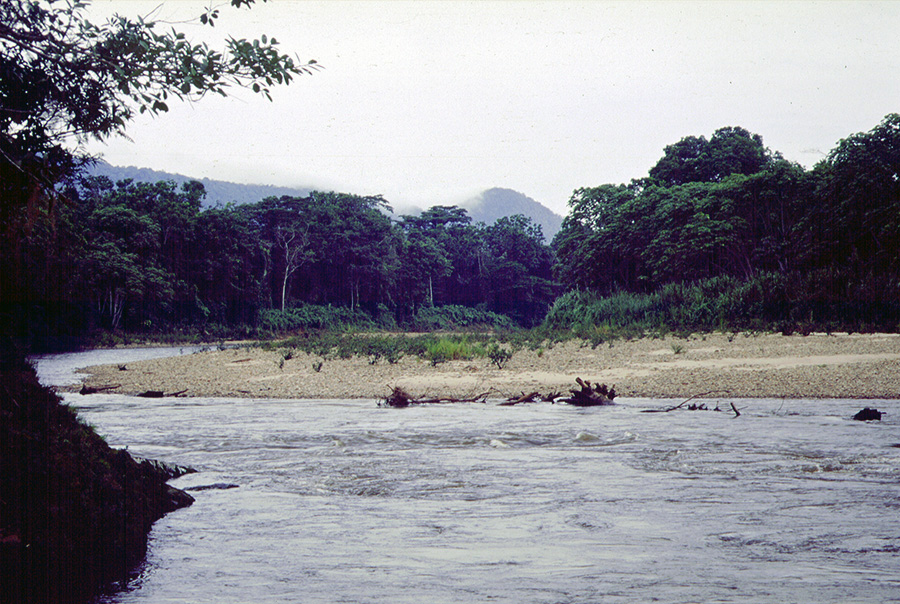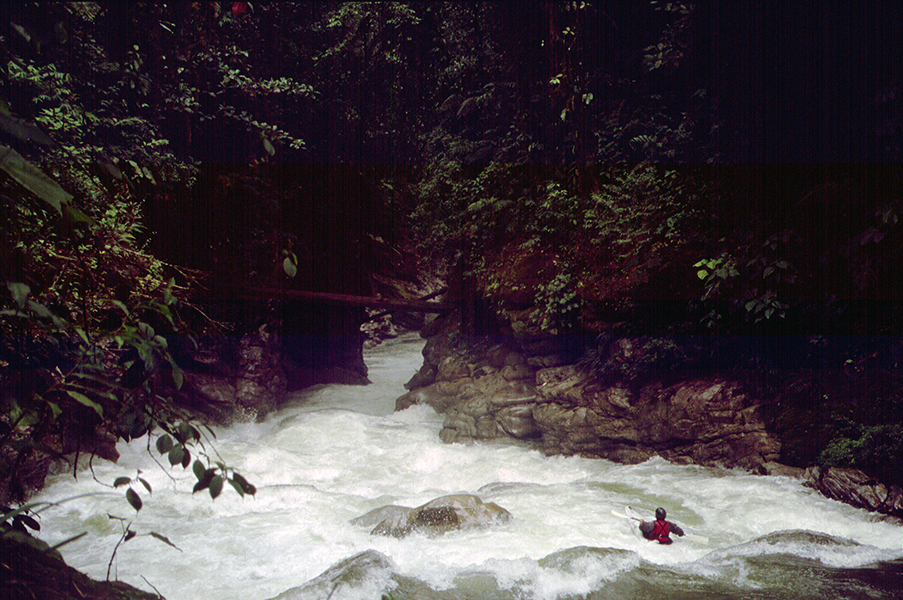
FOR IMMEDIATE RELEASE: February 2, 2021
Contacts: Constanza Prieto Figelist (cpfigelist@earthlaw.org, +1-202-621-3877) Grant Wilson (gwilson@earthlaw.org, +1-510-566-1063)
QUITO, ECUADOR—This week, a coalition of forest experts, river protectors, and law professors submitted an amicus brief to Ecuador’s Constitutional Court calling for a robust application of the “Rights of Nature” to protect the Upper Nangaritza River Basin Protected Forest (“Bosque Protector de la Cuenca Alta del Rio Nangaritza”) from dangerous and harmful mining. This is the latest case in a series that the Constitutional Court will draw from to determine what the Rights of Nature means in practice.
The Upper Nangaritza River Basin Protected Forest is internationally recognized as a high biodiversity region and provides water to local communities throughout the Zamora-Chinchipe province. It also provides essential habitat to numerous species at risk of extinction. Mining concessions granted to Lundin Gold, Sulcomi SA, and Green Rock Resources covers 75 percent of the surface area of the Protected Forest, placing this unique and essential ecosystem in tremendous danger.
The mining concessions also border on the ancestral territory of the Shuar Arutam people. Healthy and intact forests are vital to sustaining the identity and culture of the Shuar people. Article 57 of the Ecuadorian Constitution guarantees the right of indigenous communities to be consulted before any state decision, including the granting of mining concessions, that could affect the local environment. Despite this, there is no record of any such consultation occurring for the mining projects.

In 2008, Ecuador became the first country in the world to constitutionally recognize the Rights of Nature, thereby establishing that Nature possesses certain basic rights, just as humans do. While the Environmental Organic Code has stated that Protected Forests do not qualify within the National System for Protected Areas, the rights of the Forest Protector exist, as well as the maintenance and regeneration of its vital cycles and structures, are recognized under the Ecuadorian Constitution.
The amicus makes several requests. First, it calls for fully upholding the rights of the Nangaritza River. Second, it calls for Article 41 of the Organic Environmental Code to be declared unconstitutional, as it fails to include Protected Forests within the National System for Protected Areas and thus leaves the forests defenseless to mining and other destructive activity.
Third, it calls for the appointment of autonomous legal guardians who act on behalf of the Protected Forest and associated ecosystems.
Fourth, it calls for the Ministry of Energy and Renewable Natural Resources and the Ministry of the Environment and Water to be ordered to protect the Rights of Nature by cancelling existing environmental concessions. Finally, it calls for the court to guarantee that the Shuar indigenous people are duly consulted, and that their right of informed consent is not infringed.
“No law or act of authority should restrict the Rights of Nature. The current legal framework leaves the Protective Forest exposed, vulnerable, and defenseless against mining activities. The Ecuadorian government must guarantee the direct and immediate application of Rights of Nature in the Protective Forest,” said Carla Cárdenas, Environmental and Forest Policy expert of Earth Law Center.
# # #
Earth Law Center (www.earthlawcenter.org) is a 501c3 organization that works to transform the law to recognize and protect nature’s inherent rights to exist, thrive and evolve. They recently released the first-ever law school coursebook on “Earth law,” which is an emerging body of ecocentric law, including the Rights of Nature.
International Rivers (www.internationalrivers.org ) protects rivers and defends the rights of communities that depend on them. We seek a world where healthy rivers and the rights of local river communities are valued and protected. We envision a world where water and energy needs are met without degrading nature or increasing poverty, and where people have the right to participate in decisions that affect their lives.
The Great Lakes Environmental Law Center (www.glelc.org) is a Detroit (USA)-based nonprofit that offers community education, policy support, and various legal services to address environmental, resource, & energy issues affecting communities in and around Detroit, all over Michigan, and throughout the Great Lakes region.
The Center for Biological Diversity (https://biologicaldiversity.org ) is a non-profit organization with more than 1.7 million members and constituencies. The Center is headquartered in the United States and has offices in the United States and Mexico. For two decades, the Center and its members have worked to protect endangered species and their habitat under state, federal, and international treaties due to the increasing number of threats to biodiversity, such as the global problems of climate change, habitat destruction, and wildlife trade. The Center believes that human societies’ health and vigor and the integrity and wilderness of the natural environment are closely linked. The Center has also worked intensively to prevent destructive activities such as commercial mining in sensitive and important habitats.
Ecuadorian Rivers Institute (www.ecuadorianrivers.org ) is a 501c3 organization that provides technical assistance and support to help protect and conserve unique watershed resources in Ecuador.
Fundación Río Napo (info@rionapo.org ) works to preserve strategic, free-flowing watershed corridors in Ecuador to conserve freshwater biodiversity and ecological connectivity and organizes river festival events to celebrate the value and importance of these resources for sustainable economic alternatives based on tourism.
Featured Image: Nangaritza River, Ecuador| Image by: Matt Terry/ERI

